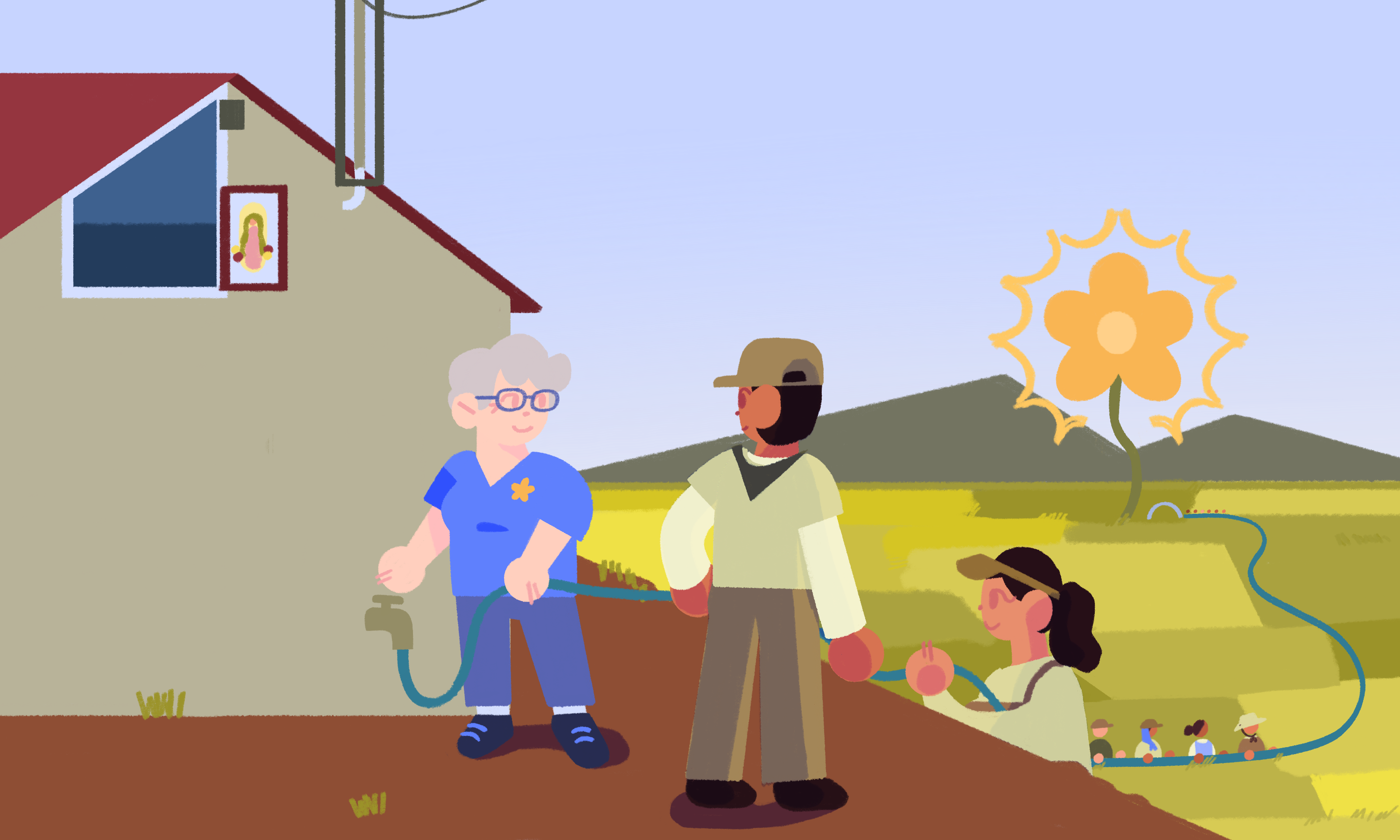
ILLUSTRATION BY SHIDEH GHANDEHARIZADEH / NEXTGENRADIO
The
Impact
of
Climate Change
In this project we are highlighting the experiences of people whose lives are being affected by climate change.
Victoria Hathaway speaks with Sister Nancy Crafton, who provides resources, care, and medical treatment for migrant workers. In Avondale, Colorado, the summer heat is excruciatingly intense for those working crops in the fields, and climate change has only made things worse. Sister Nancy runs El Centro De Los Pobres or The Center for the Poor, which has served as a refuge for hundreds of migrant workers and their families seeking support.
Migrant Farmworkers Face the Effects of Climate Change in Colorado
Sister Nancy Urges Compassion Amidst Climate Change
Click here for audio transcript
Sister Nancy Crafton: You have to see the families.They, they are not invisible. You have to see this, so you can understand, and, and you can see the value that they have for our country.
My name is Nancy Crafton and I am a sister of Charity of Cincinnati, Ohio.
I have been in, um, Avondale, Colorado at our little, uh, center, which is called Los Pobres. And it means the poor in Spanish.
I am a nurse by profession and have worked in, um, acute care settings for about 45 years. I’ve learned so much in my years of caring for people in acute care and in neurosurgery, which was my specialty.
And, um, and in working with the very extremely poor people that, um, I still believe, I still believe that we can do something about it, but it’s damn hard.
Our families primarily are from Mexico. All of the states within Mexico, from everywhere, uh, Michoacán, um, uh, Zacatecas And then we have them from El Salvador, Nicaragua.
They are undocumented. Uh, they live always with an undertow of fear and, uh, they have medical problems and issues that are sometimes insurmountable.
The heat, you know, it’s 105 here. It is 105. And in this building right now, it’s probably 103. Um, so we, we know what the heat is like, and they’re out in the fields. They have to work. If they, if they take time off, if they cool down, they don’t, you know, if they don’t get the work done, then they don’t have the money.
We had one Thursday here. … She’s, she never had worked in the field. So here she is working. And, um, uh, it, that was really, really hot. And they were not drinking water and pretty soon. She just knows her blood pressure starts to drop.
She gets a headache and her, her side goes numb and they think she’s having a stroke and they take her to the emergency room. And of course it’s heat stroke. She’s 30 years old. And, um, so, uh, they treat her with IVs and medication and cool her down and then send her home.
The doctors were still here and all of a sudden this group of young men come in and they just look like their, their eyes are glassy.
I mean, they’re just like zombies. And uh, so I, I, I called a few people. I said, you know, we really need to have some Gatorade and some Pedialyte or some, you know, something for adults that we can have here because the heat is overwhelming and the humidity is even worse.
This has been a bad couple of weeks with – with the heat down here and that’s different. We’ve not had this kind of heat without respite.
We have to do something. It’s just, it’s just not right. That we’ve done this to our planet, you know, but, you know, so we, we try to work within the parameters that are given to us, but it gets harder every day.
I have to always remind myself that compassion, compassion, compassion, no matter, no matter what, what it is, you, you just have to believe that, um, connecting with another human being will have an impact hopefully for that person.
A small tile portrait of the Virgin of Guadalupe hangs at the front of El Centro de los Pobres, or the Center for the Poor, located in a warehouse behind a Catholic church in the town of Avondale, Colorado. It is Monday and the center is closed, but Sister Nancy Crafton is always there.
For the last 22 years, Sister Nancy has worked at the center founded by Father Maurice Gallagher in 1979, using her training and background as a registered nurse to care for the migrant farmworkers and their families who pay a visit. She greets everyone with a warm smile. On Monday, she wore a navy blue blouse with one single daisy embroidered over her heart along with matching flower-printed jeans.
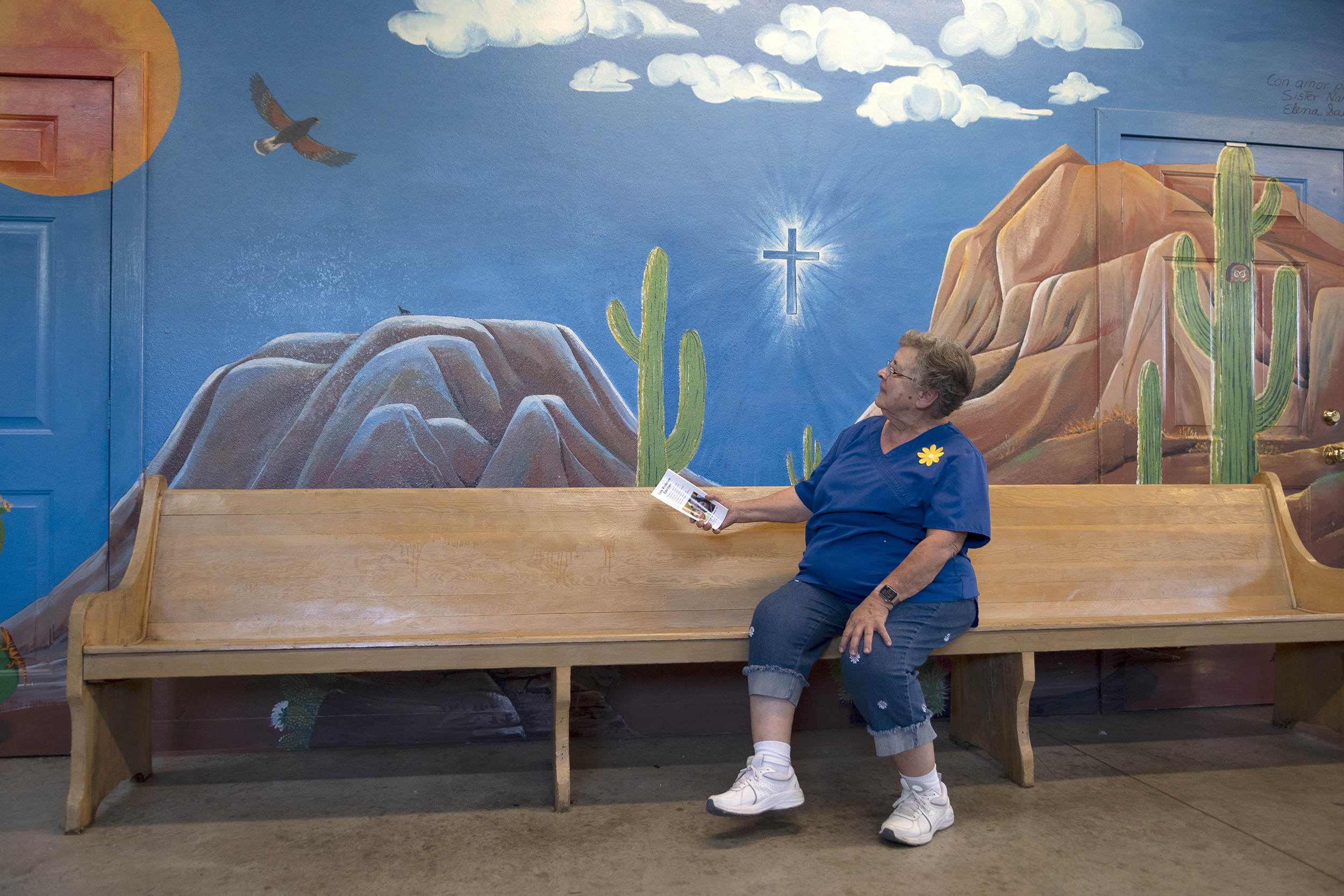
Sister Nancy Crafton, a trained nurse of over 45 years with experience in acute care settings and specializing in neurosurgery, has been running “El Centro De Los Pobres,” The Center for the Poor, for over two decades. Local artist Elena Sainz painted the mural behind Sister Nancy, representing the journey of migrant farm workers across the border and their safe refuge within the Center.
VICTORIA HATHAWAY / NEXTGENRADIO
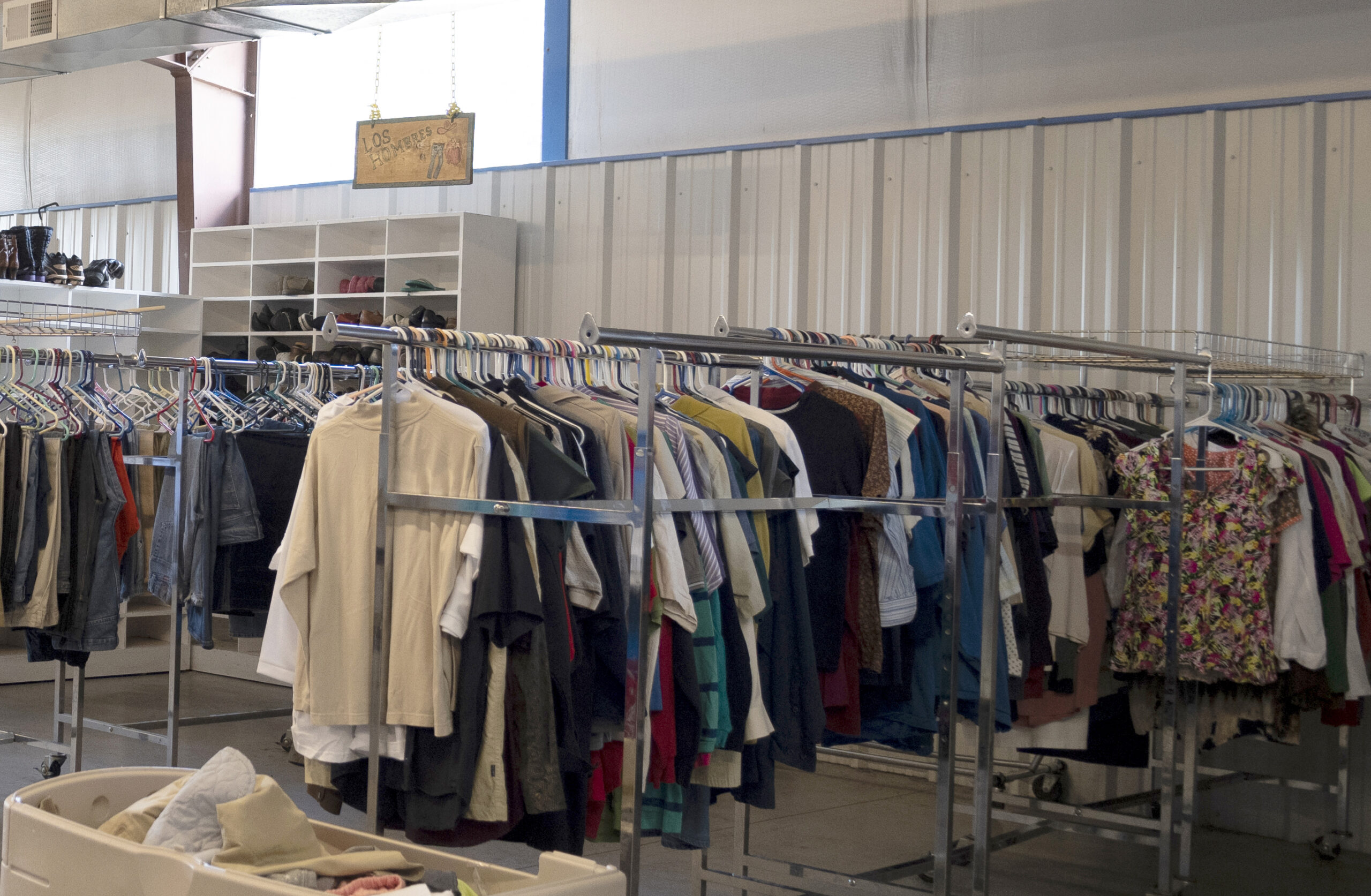
“El Centro De Los Pobres,” The Center for the Poor, provides services and items for those in need, including but not limited to clothing for men, women and children, furniture, kitchen supplies, hygiene products and medicine. The donations come from people around the state of Colorado including a regional hospital.
VICTORIA HATHAWAY / NEXTGENRADIO
Volunteers, many of whom are families of the farmworkers, can serve up to 220 families per week at the center. The volunteers help disperse 600 pounds of pinto beans and 600 pounds of rice each week to families.
The center’s warehouse is small yet interspersed with donations from around the state and a regional hospital, including medicine, toiletries, houseware, clothing and even furniture all distributed to those in need. Inside, there are places where children can play with toys and where families can pick up secondhand clothing.
The center was not expected to last for long, Sister Nancy said. It was meant to provide temporary assistance with medical care, food, and advice for families seeking legal residency. Sister Nancy said she still has not given up hope on the farmworkers and their families whom she has devoted over two decades serving.
The families emigrate from Mexico, Central and South America, crossing the border and continuing up to Colorado to farm chiles, melons and beans in the summer sun, Sister Nancy said.
WE’VE NOT HAD THIS KIND OF HEAT WITHOUT RESPITE
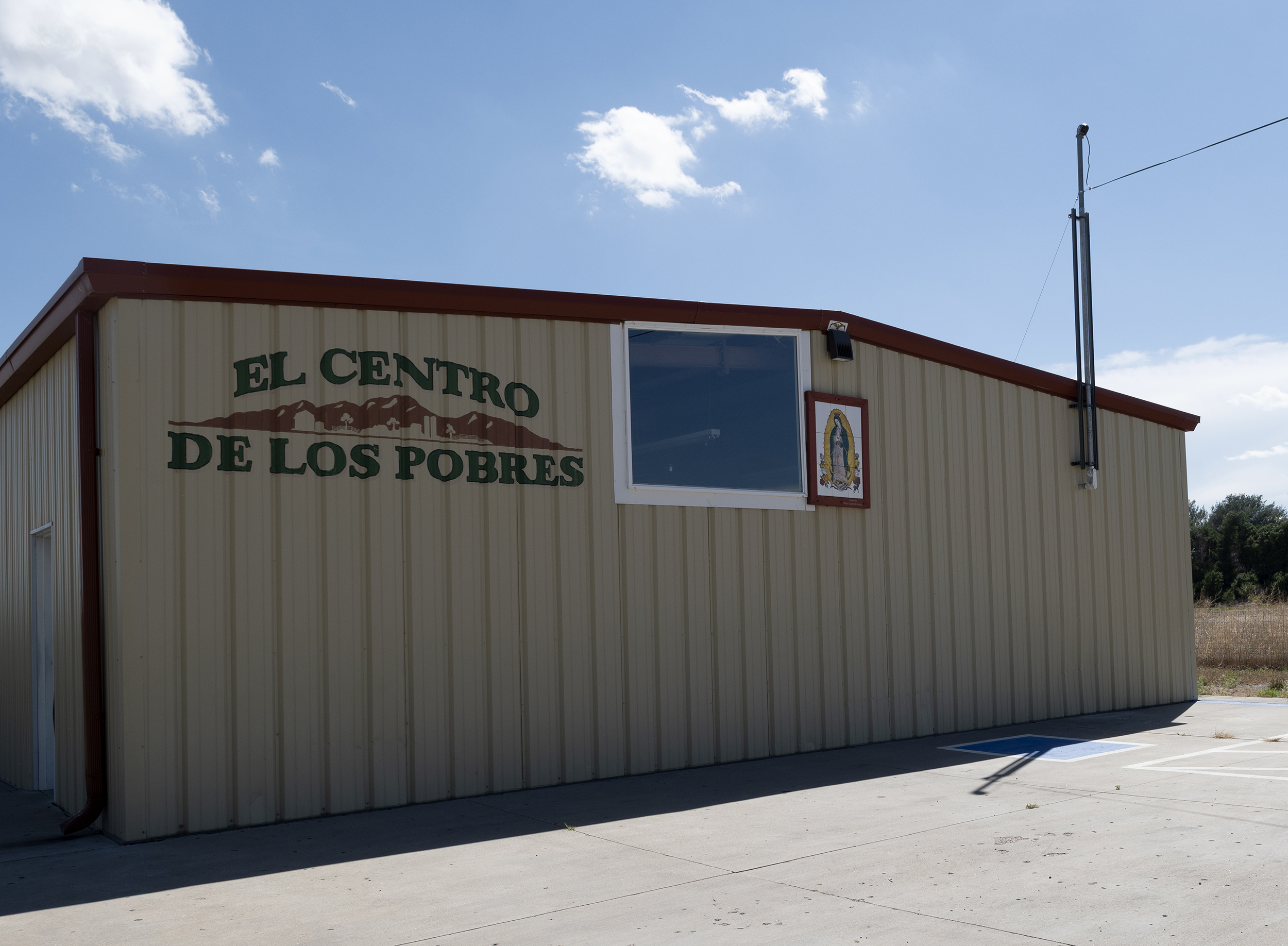
“El Centro De Los Pobres,” The Center for the Poor, run by Sister Nancy Crafton, has served Avondale, Colorado and the surrounding counties since 1979 with nearly 220 migrant farm workers and their families visiting per week.
VICTORIA HATHAWAY / NEXTGENRADIO
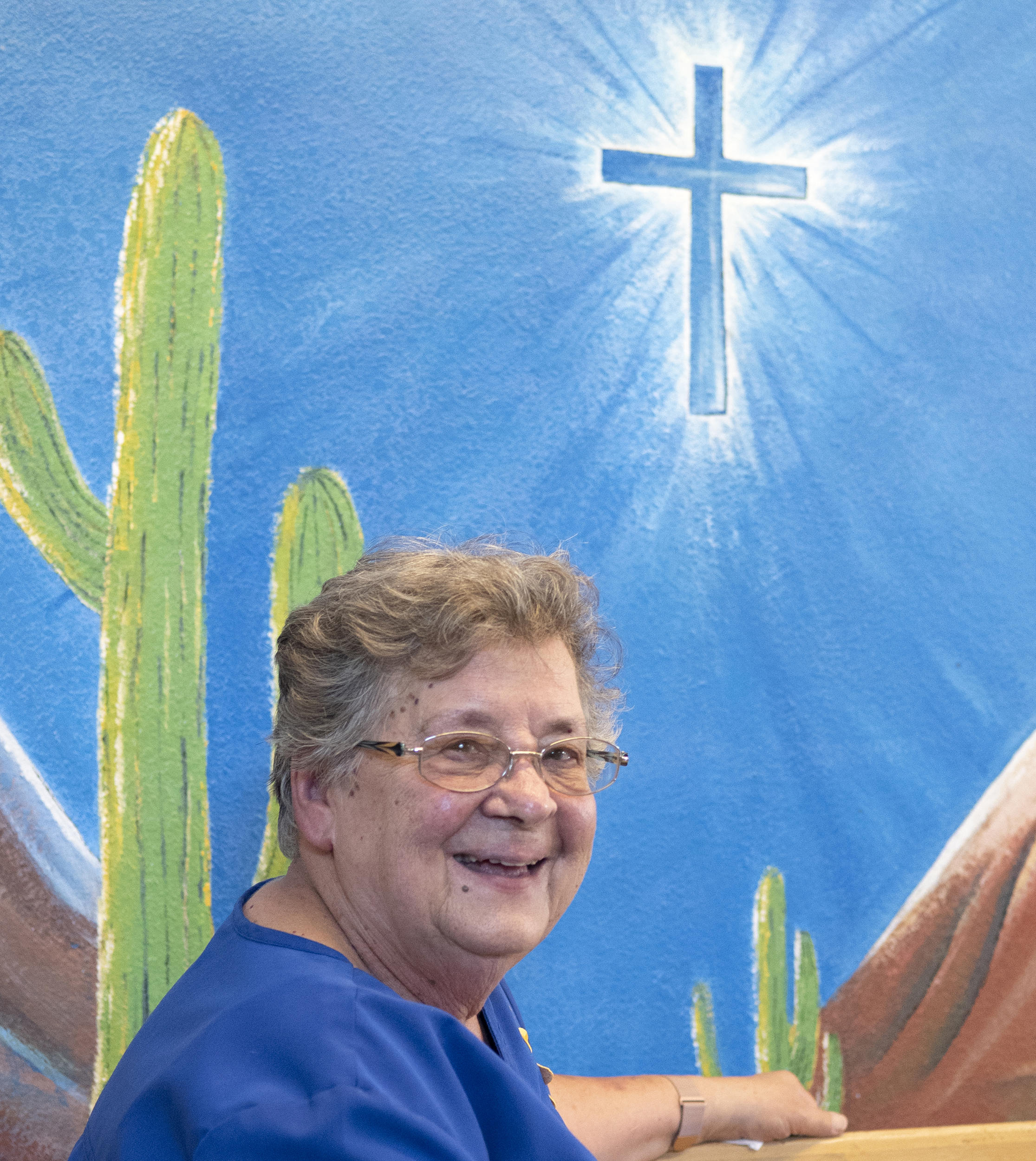
Sister Nancy Crafton, a Sister of Charity of Cincinnati, sits in front of the mural dedicated to her. She says, “I have to always remind myself that compassion, compassion, compassion, no matter what.”
VICTORIA HATHAWAY / NEXTGENRADIO
“We’ve not had this kind of heat without respite,” she said, describing the rising temperatures caused by climate change and their effects on the farmworkers.
She tells stories of those who have come to the center seeking treatment for heat stroke and heat exhaustion. One young man recently came to her glassy-eyed and with low blood pressure after working in the field under 103-degree heat, she recalled.
The issues faced by the families, many of which are undocumented, are vast, she said. They struggle to afford rent making minimum wage, and face discrimination and long legal battles in their quest for U.S. citizenship.
Some who seek medical treatment are denied entry into hospitals because of their immigration status. Those families then come to Sister Nancy for treatment or medical care.
“I have to always remind myself: compassion, compassion, compassion,” Sister Nancy said. “You just have to believe that connecting with another human being will have an impact, hopefully, for that person.”
THEY’RE HUMAN BEINGS AND THEY NEED TO BE TREATED WITH DIGNITY AND RESPECT
She was raised to see the value in every individual and stressed that people who cross the border are here working alongside us. She said people need to look at the Taco Bells and the McDonald’s and the roofers and the gardeners.
“They’re human beings,” she said. “And they need to be treated with dignity and respect.”
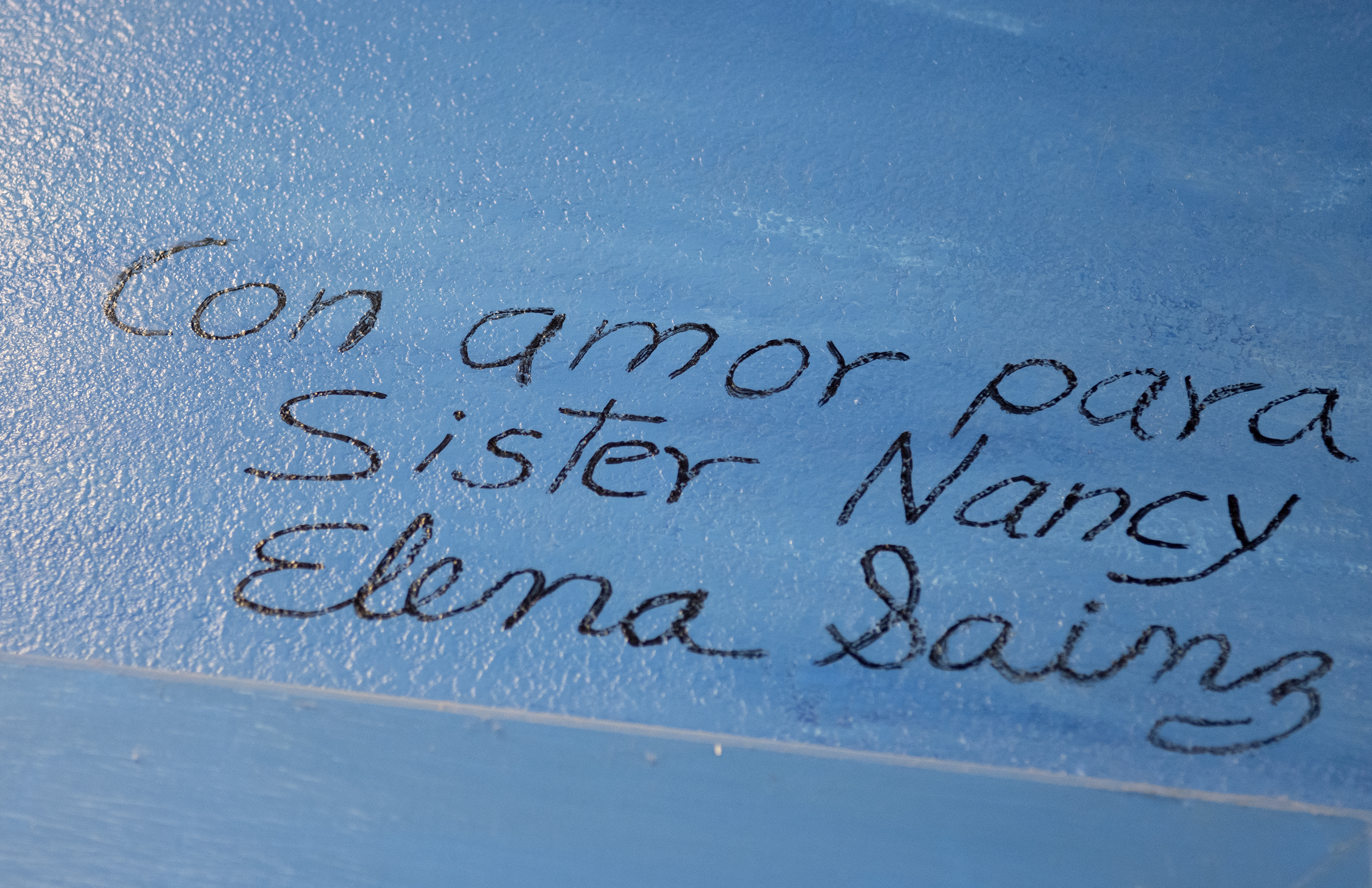
Local artist Elena Sainz signed the large mural she painted inside El Centro De Los Pobres, writing above it “with love for Sister Nancy” in Spanish.
VICTORIA HATHAWAY / NEXTGENRADIO